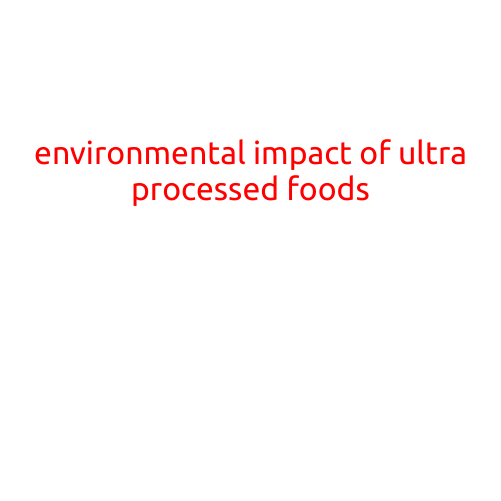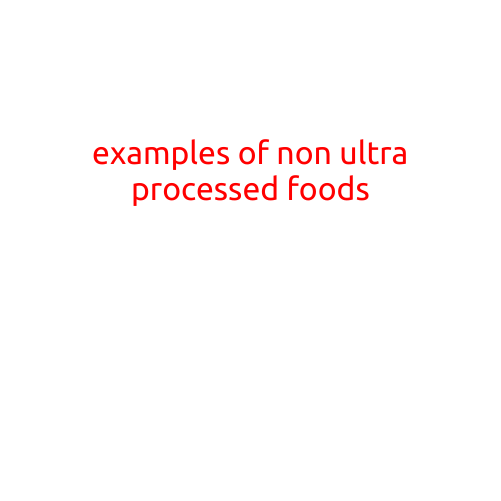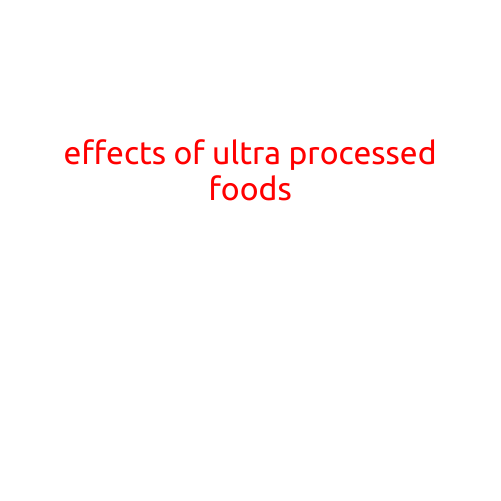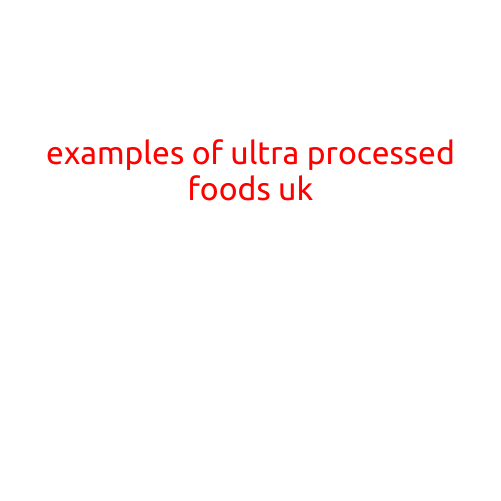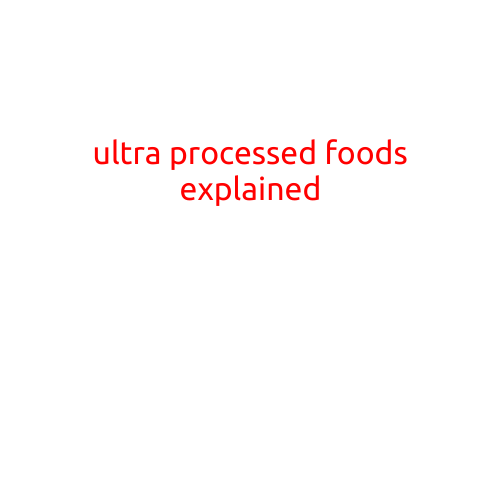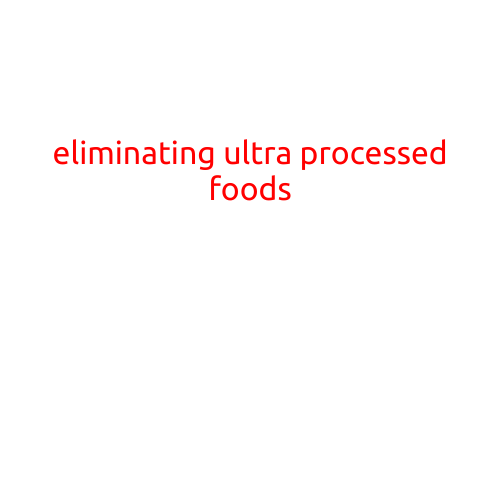
Eliminating Ultra-Processed Foods: A Path to Better Health
In recent years, the conversation around food has shifted from just focusing on calorie intake to examining the quality and composition of the food we eat. One trend that has emerged is the growing awareness of ultra-processed foods and their negative impact on our health. Eliminating these foods can be a crucial step in achieving better health and well-being.
What are Ultra-Processed Foods?
Ultra-processed foods (UPFs) are foods that have undergone significant alteration from their natural state through processing, preservation, and preparation. Examples of UPFs include packaged snacks, frozen meals, sugary drinks, and even some types of bread and pasta.
According to a study published in the journal BMJ, more than half of the energy we consume comes from UPFs. These foods are often high in unhealthy ingredients like added sugars, salt, and unhealthy fats, which can lead to a range of health problems, including obesity, type 2 diabetes, and heart disease.
The Dangers of Ultra-Processed Foods
Consuming UPFs regularly has been linked to a host of negative health effects, including:
- ** Increased risk of chronic diseases**: UPFs have been linked to a higher risk of diseases like heart disease, stroke, and cancer.
- Obesity and weight gain: UPFs are often high in calories and low in nutrients, leading to weight gain and obesity.
- Metabolic problems: UPFs can disrupt metabolic processes, leading to insulin resistance and type 2 diabetes.
- Nutrient deficiencies: UPFs are often low in essential nutrients like fiber, vitamins, and minerals.
- Impact on gut health: UPFs can alter the gut microbiome, leading to digestive problems and immune system dysfunction.
Why Eliminate Ultra-Processed Foods?
Eliminating UPFs from your diet can have significant health benefits. By reducing your consumption of these foods, you can:
- Improve nutrient intake: Focus on whole, unprocessed foods to ensure you’re getting the nutrients your body needs.
- Lower your risk of chronic disease: Reducing UPF consumption can help lower your risk of chronic diseases like heart disease and cancer.
- Support healthy weight management: By focusing on whole, nutrient-dense foods, you can support healthy weight management and reduce your risk of obesity.
- Promote gut health: Focus on whole foods and fiber-rich diets to promote a healthy gut microbiome.
Tips for Eliminating Ultra-Processed Foods
Eliminating UPFs can be challenging, but with a few simple strategies, you can make the transition smoother:
- Start small: Begin by eliminating one or two UPFs from your diet each week, and gradually work your way up.
- Focus on whole foods: Prioritize whole, unprocessed foods like fruits, vegetables, whole grains, lean proteins, and healthy fats.
- Read labels: Get to know what ingredients to avoid and what labels to look for on packaged foods.
- Cook at home: Cooking at home allows you to control what goes into your food and ensures that you’re getting whole, nutrient-dense meals.
- Seek support: Share your goals with friends and family and seek support from health experts for guidance and motivation.
Conclusion
Eliminating ultra-processed foods from your diet can have a significant impact on your health and well-being. By focusing on whole, unprocessed foods and gradually reducing UPF consumption, you can reduce your risk of chronic diseases, support healthy weight management, and promote a healthy gut microbiome. Start your journey today and take control of your health!
